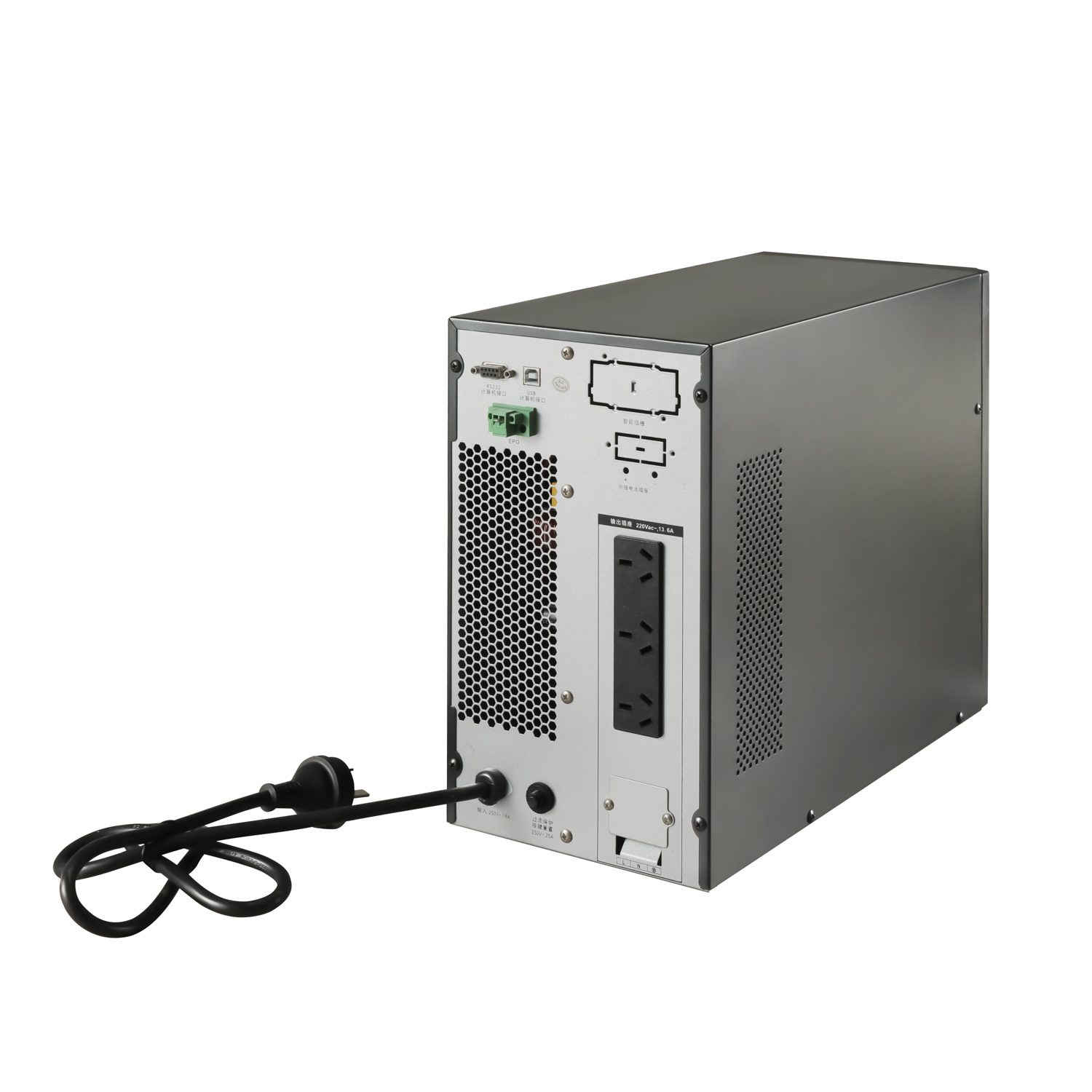With the continuous development of information technology, power supply has become an indispensable part of modern life. In many cases, a sudden power outage or voltage fluctuation can have a fatal impact on critical facilities such as data centers, servers, network equipment, etc., resulting in service interruption and data loss. In order to solve these problems, Online UPS (Uninterruptible Power Supply) is widely used as an important power guarantee equipment. Now we will explore what are the advantages of online UPS equipment.

Online UPS is a high-level uninterruptible power supply device that can detect and correct input voltage and frequency fluctuations in real time to ensure the stability and reliability of output power. Compared with other types of UPS, such as offline UPS and line-interactive UPS, this device provides more comprehensive and continuous protection, and can meet the occasions that require higher power quality.
An online UPS consists of three main modules: rectifier, battery and inverter. The rectifier converts the incoming AC power to DC, which is then charged by the battery. When the grid voltage fluctuates or there is a power outage, the inverter will start immediately and convert the DC power of the battery into AC power to maintain the stability and continuity of the output power. This process is real-time and transparent to the user as it requires no switching time or manual intervention.
The advantages of online UPS are obvious. First, it offers the highest level of protection against power fluctuations, blackouts, and other power issues that can affect devices and data. Second, it has characteristics such as high efficiency and low noise, making it widely used in occasions requiring quiet and efficient power supplies. In addition, the online UPS also has the advantages of scalability and strong functionality, which can meet the application scenarios of various scales and needs.
Although an online UPS is a high-level power assurance device, it has some challenges and limitations. The first is the issue of cost. Compared with other types of UPS, the price of online UPS is usually higher, which may cause financial burden to users. Second, since an online UPS needs to work all the time, it also consumes relatively high power and heat, which may increase equipment management and operating costs. In addition, online UPS also requires higher technical level and expertise in design and maintenance to ensure its stable and continuous operation.
In summary, an online UPS is a high-level power assurance device that is widely used in many critical facilities. It has the advantages of high efficiency, strong reliability, and strong functionality, and can meet application scenarios of various scales and needs. However, due to its high cost and high technical requirements, users need to weigh its advantages and limitations when purchasing and using them, and choose the most suitable product for them.
 English
English
 Español
Español
 Português
Português
 русский
русский
 français
français
 日本語
日本語
 Deutsch
Deutsch
 Tiếng Việt
Tiếng Việt
 Italiano
Italiano
 Nederlands
Nederlands
 ไทย
ไทย
 Polski
Polski
 한국어
한국어
 Svenska
Svenska
 magyar
magyar
 Malay
Malay
 বাংলা
বাংলা
 Dansk
Dansk
 Suomi
Suomi
 हिन्दी
हिन्दी
 Pilipino
Pilipino
 Türk
Türk
 Gaeilge
Gaeilge
 عربى
عربى
 Indonesia
Indonesia
 norsk
norsk
 اردو
اردو
 čeština
čeština
 Ελληνικά
Ελληνικά
 Українська
Українська
 Javanese
Javanese
 فارسی
فارسی
 தமிழ்
தமிழ்
 తెలుగు
తెలుగు
 नेपाली
नेपाली
 Burmese
Burmese
 български
български
 ລາວ
ລາວ
 Latine
Latine
 Қазақ
Қазақ
 Euskal
Euskal
 Azərbaycan
Azərbaycan
 slovenský
slovenský
 Македонски
Македонски
 Lietuvos
Lietuvos
 Eesti Keel
Eesti Keel
 Română
Română
 Slovenski
Slovenski
 Српски
Српски
 Беларус
Беларус


